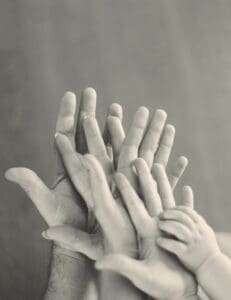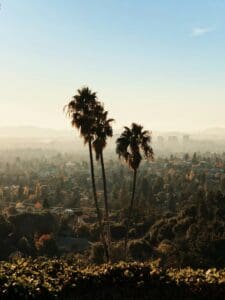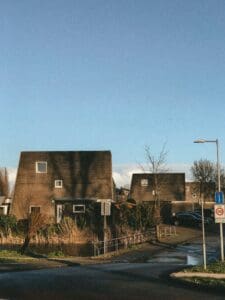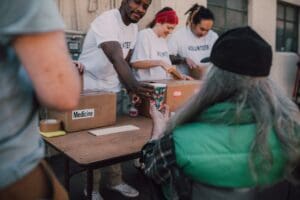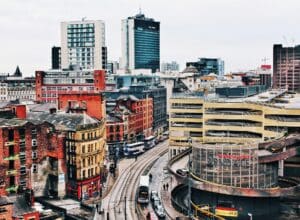Article originally published on May 31st, 2019.
Last Saturday, May 25th 2019, an event took place in Marica, a city on the coast of the state of Rio de Janeiro, where the mayor Fabiano Horta (representant from PT, Partido dos Trabalhadores), vice mayor Marcos Ribeiro and the secretary of Solidarity Economy, Diego Zeidan, announced that, from July 2019 onward, 50000 citizens, a third of its 150000 inhabitants, will receive a Citizen’s Basic Income of 130 Mumbacas, a local electronic currency, equivalent to 130 reais, or US$ 32,5 per month. The plan is to have all Maricá’s citizens receiving this unconditional cash, at least until the end of the present city government legislature.
Longtime politician (presently councilman in the City of São Paulo) and basic income activist Eduardo Suplicy had already explained the advantages of implementing basic income in Brazil, as a part of a general upgrade of social policy in the country. That policy, actually, has been written into Brazilian law since 2004 (Law 10.835/2004), but sanctioned by president Lula on January 8th 2004. There, it says that a basic income shall be rolled out in Brazil, step by step, starting with those most in need, until one day it benefits all citizens.
After an important Conference on Human Rights, held in Brazil in December 2015, where Suplicy reinforced his views, Maricá’s mayor at the time, Washington Quaquá, manifested his intention of implementing the Citizen’s Basic Income in his city. That same month, he was able to pass his purpose into municipal law, which would be introduced in phases: 95 Mumbucas per month in 2016 (85 Mumbucas from a Minimum Income program, plus 10 Mumbucas/month), 130 Mumbucas per month in 2017 (110 Mumbucas from the Minimum Income program, plus 20 Mumbucas/month), disbursed to 14000 families, and now in 2019, starting in July, that same amount will be enlarged to cover 50000 individuals. This payment will be now limited to citizens who belong to families enrolled in the Unique Register, having monthly incomes lower than three minimum wages (1 minimum wage is equal to around 1000 reais/month), but expected to cover all citizens in the village by 2021.
So, the ongoing cash transfer in Maricá is done in a non-transferable social local currency (Mumbuca), is set to cover one third of the population (although projected to cover the whole population by 2021), and amounts to the equivalent of 67% of the individual official poverty line in Brazil (1). Although far from ideal, this is a very significant step when in comparison to some recent basic income test trials such as in Finland (2000 unemployed citizens receiving 560 €/month for two years), Stockton California (125 citizens receiving 500 US$/month for 18 months), Namibia (1000 people in Otijivero receiving the equivalent to 12 US$/month, for 12 months) and India (6000 people in Madhya Pradesh receiving 300 (adults) and 150 (children) rupees/month, for 36 months).
Even though the Mumbuca is a local currency, most commercial stores in Maricá accept it. Also, a Communitary Bank Mumbuca was created in order to provide microcredit at zero interest rates, in Mumbucas, which can also fund housing projects. Maricá mayors (Quaquá and Horta) have, on the other hand, introduced social security measures / programs alongside with this more general basic income approach. For instance, a minimum income program has been created for pregnant mothers and youngsters. Additionally, starting in 2019, another specific program was initiated, dispensing 300 Mumbucas/month to 200 indigenous people that live in small villages near Maricá. There is also a Future Mumbuca program for young people, that are currently enrolled in high school courses involving solidary economy and entrepreneurship, which will pay 1200 Mumbucas per year. In that program, the valued is transferred once the youngster completes high school, starts a firm, a cooperative or becomes an undergraduate student.
Other social support programs have been created in Maricá, over the years, such as free transportation (14 lines in Maricá’s urban area), and special conditions for university students (around 4000), in and out of Maricá. Plenty other public investments were made in education, health, and even organic farming. This unusual plentiful municipal budget (16665 reais/inhabitant, compared to São Paulo’s 5041 reais/inhabitant) is the product of oil exploration royalties along Maricá’s coast. Despite the inherent pollutant nature of this municipal revenue stream, past and present city mayors have been investing in providing better living conditions for the population within their administration’s borders. This way, Maricá has become a bright example for all municipalities in Brazil, as well as for the federal government.
Note (1) – The official poverty line in Brazil stands at 387 reais/month per family. Considering a two-adult composition in each family, this equates to 194 reais/month per (adult) individual.
Article reviewed by André Coelho



